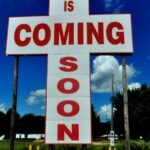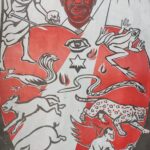Beyond Referendum
We have spoken through the referendum, let us therefore ask the Almighty God for wisdom, discernment, a spirit of reconciliation and cooperation between the opposing sides bearing in mind that ‘all things God works for the good of those who love him ….’ (Rom 8:28). Let us pray for our PM, David Cameron and his team in the few months ahead and for a good successor. thank you for...
Read More





Recent Comments